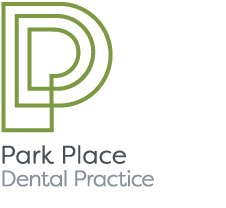
Is your equipment sterilised?
Yes, absolutely! Sterilisation is a priority at Park Place Dental Practice and every effort is made to ensure the highest standards of hygiene. Our modern equipment, instrument sterilisation and cross infection control procedures all conform with British Dental Association, Faculty of General Dental Practitioners and Health & Safety Executive guidelines. Our modern Cardiff city centre practice even has its own specifically designed sterilisation room. Our progressive practice uses ’single use only’ instruments whenever possible and carries out on-going monitoring, audits and staff training on cross infection control. Please contact us if you have any additional questions or if you would like to pop in to speak with us.
How do I cancel an appointment?
You can cancel an appointment by phoning the practice directly or you can email us at reception@parkplacedental.co.uk We do need 48 hours notice of a cancellation as this enables us to reallocate the appointment to another patient. We reserve the right to charge for short notice cancellations and failed appointments at our current hourly rate of £150 per hour.
Do you have flexible payment options for treatments?
Certainly. You can pay for your treatments by cash, cheque or credit card. We also offer 0% finance for any treatments over £500. This allows you to spread out the cost of your treatments and pay for them in manageable monthly repayments.
Do you have onsite parking?
We don’t have onsite parking. However, we are very fortunate to be centrally located, close to a train station, bus stops and a number of carparks within a few minutes walking from our practice How to Find Us.
Do you have a hygienist?
Yes, Park Place Dental Practice provides a full range of tailor-made hygiene therapy solutions for our Cardiff city centre professional clients. Prevention is a priority to us and so all of our dental treatments are underpinned and complimented by our advanced hygiene services. Our Hygienist/Therapist focuses on securing excellent gingival health and provides services such as stain removal, bleaching, fresh breath clinics, smoking cessation support etc. Please feel free to contact us with any questions you may have or if you would like to make an appointment.
What type of toothbrush should I use?
As a general rule, adults should choose a small to medium sized brush with soft to medium multi-tufted, round-ended nylon bristles or filaments. The head should be small enough to get into all parts of the mouth, especially the back of the mouth where cleaning can be difficult. Children need to use smaller brushes but with the same type of filaments.
There are also a number of specialised toothbrushes e.g. for people who may have very sensitive teeth or crooked/overlapping teeth and for those who may have difficulty holding normal sized toothbrush handles. In addition, there are a wide variety of electric toothbrushes to choose from. Your dentist or dental hygienist/therapist will be happy to help you identify the best toothbrush option for you.
I look after my teeth quite well by brushing twice a day and avoiding sugary foods and drinks between meals but I still get tartar building up on my teeth, why is this?
Firstly, well done for limiting your sugar intake to meal times and brushing twice a day! You are really helping to protect your teeth from problems with decay. Tartar, also known as calculus, forms near the gumline and is the result of plague hardening on our teeth. Plague is a thin sticky film of bacteria that constantly forms on our teeth. Most plaque can be removed by thorough toothbrushing and flossing. However, some plague can still build up over a period of time and some people are a little more prone to this than others.
A number of factors may also contribute to this problem such as having difficult to reach areas or toothbrushing technique. Our hygiene/therapist can help you ascertain what factors may be contributing to your problem and recommend simple techniques or interproximal brushes which will help you with this. Please feel free to contact us with any questions you may have or if you would like to make an appointment.
Why do I have a black line around my old crown?
Older types of crowns have metal inside for strength and as the gum recedes over time the metal can shine through which appears as a black line. The latest all ceramic restorations e.g. Lava or Lumineers, prevent this from happening as they have no metal inside. Therefore, even after years of service they still look beautiful and natural.
What is the best option to replace missing teeth?
There are three ways of replacing missing teeth. These are bridges, implants or dentures and they can be combined. The best option will vary according to the health status of the remaining teeth and the need to meet the social requirements of the patient. The best treatment is always the one that combines these factors whilst ensuring continued dental health. There will be advantages and disadvantages of all three options and it is important that these are outlined to you before making any decision. If you would like to discuss your options then please contact us for a free consultation.
Are white fillings as strong as amalgam ones?
White fillings, if used in small sized cavities, will last as long as amalgam and are often better for the tooth as they stick well to the tooth and hence require less of the good tooth to be removed to hold the filling in. However, if a large amount of tooth is lost then white fillings placed directly by the dentist would be better substituted with stronger solutions made by a laboratory. These could be crowns or inlays and can be made either of gold or the latest all ceramic restorations. These combine the optimum in beauty but with very high strength.
I would like to straighten my teeth but don’t like the thought of metal braces. Are there any other alternatives to these?
There are many alternatives. Normal ‘ metal’ braces can be replaced with white brackets if needed. Alternatively, the latest orthodontic trend is for teeth to be moved using clear, invisible, removeable braces using systems such as ‘Clearstep’. These allow you to achieve a great result without the inconvenience of having unsightly brackets glued to the teeth.
My teeth appear to be a little discoloured, what causes this?
Many factors can cause teeth to become discoloured over time. The most common include general aging, consumption of staining substances such as tea, coffee, cola or tobacco, trauma, tooth nerve damage and old restorations. Some treatments, such as Corsodyl mouthwash, can also stain teeth over time. The consumption of tetracycline or excessive fluoride during tooth formation, may cause teeth to discolour. For more advise on this, please contact Park Place Dental Practice to book a free consultation.
What is tooth whitening?
This is a bleaching process that lightens discolouration of enamel and dentine.
Who may benefit from teeth whitening?
Almost anyone! Teeth whitening is particularly idea for people who have healthy, unrestored teeth who would like to have a whiter, brighter smile. Achieving a whiter smile for people who have restorations such as crowns, bridges or veneers, is a more involved process, planned with the dentist, as it usually requires the replacement of some restorations. Contact Park Place Dental Practice to book a free consultation and we will help establish whether teeth whitening is appropriate for you.
How long does the effects of bleaching last?
Generally the effects can last for up to two years. Some people need to ‘touch up’ their teeth by re-whitening for one or two days, usually once or twice a year. This is especially true if the person is exposed to staining substances such as caffeine, tobacco, red wine etc. Contact Park Place Dental Practice to also enquire about our Stain Removal treatments.
How to find us
Opening Hours
Emergency Appointment
Out-of-hours Emergency Cover
Whenever possible, please contact us during normal surgery hours. In extreme emergencies more details can be found below.

